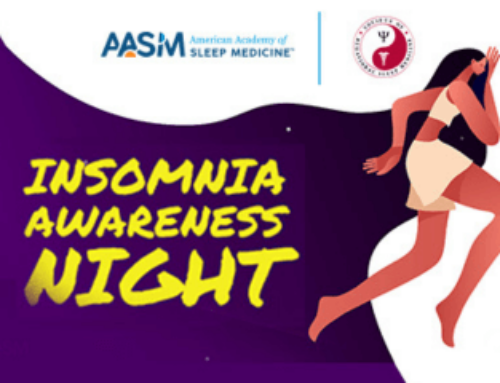Westchester, Ill. — A study in the May 1 issue of the journal SLEEP suggests that babies born to mothers with depression are more likely to suffer from significant sleep disturbances at 2 weeks postpartum that continue until 6 months of age. Findings of the study are of particular importance, as sleep disturbances in infancy may result in increased risk for developing early-onset depression in childhood.
Results indicate that infants born to mothers with depression had significant sleep disturbances compared to low-risk infants; the high-risk group had an hour longer nocturnal sleep latency, shorter sleep episodes and lower sleep efficiency than infants who were born to mothers without depression. Although average sleep time in 24 hours did not differ by risk group, nocturnal total sleep time was 97 minutes longer in the low-risk group at both recording periods. High-risk infants also had significantly more daytime sleep episodes of a shorter average duration.
Previous studies have found that levels of cortisol, a hormone that is associated with stress, is increased during pregnancy and after delivery in depressed mothers, indicating that the mother’s hormone level may affect the infant’s sleep.
According to the lead author, Roseanne Armitage, PhD, director of the Sleep and Chronophysiology Laboratory at the University of Michigan Depression Center, while maternal depression does have a negative effect on infants’ sleep, the damage may be reversible.
“We do think that we could develop a behavioral and environmental intervention to improve entrainment of sleep and circadian rhythms in the high risk infants,” said Armitage. “However, whether it is maternal hormones that “cause” the sleep problems in infants is not yet known. It could genetic, hormonal, or both. Regardless of the cause, they may still be modifiable since brain regulation is very plastic and responsive in childhood.”
The study involved 18 healthy full term infants, half of whom were male. Seven infants were born to women with no personal or family history of depression and 11 were born to women diagnosed with depression or with elevated levels of depression symptoms. Five women were experiencing a Major Depressive Disorder (MDD) episode during the beginning of the study.
Infants who were born to mothers who has past or present MDD according to the DSM-IV or who scored high for postnatal depression were placed in a high-risk group for depression; all other infants were considered to be low-risk. Both the mother and infants’ sleep was measured with light and motion sensor actigraphy over the course of seven consecutive days at two-weeks postpartum and monthly thereafter for six months. Mothers were also asked to complete daily sleep/wake diaries. Mothers were recruited during the last trimester of pregnancy through perinatal mood disorders or obstetrics clinics at the University of Michigan.
Authors state that findings of this study claim that future work should attempt to determine if sleep in infancy is modifiable and to define the optimal conditions for entrainment of sleep to the nocturnal period. According to previous studies, untreated infant sleep problems can become chronic, with implications for the mental health and well-being of both the child and the mother. The difficulties of mothers who are already vulnerable to anxiety and depression will be exacerbated if they also are deprived of sleep.
SLEEP is the official journal of the Associated Professional Sleep Societies, LLC (APSS), a joint venture of the American Academy of Sleep Medicine and the Sleep Research Society.The APSS publishes original findings in areas pertaining to sleep and circadian rhythms. SLEEP, a peer-reviewed scientific and medical journal, publishes 12 regular issues and 1 issue comprised of the abstracts presented at the SLEEP Meeting of the APSS.
AASM is a professional membership organization dedicated to the advancement of sleep medicine and sleep-related research. As the national accrediting body for sleep disorders centers and laboratories for sleep related breathing disorders, the AASM promotes the highest standards of patient care. The organization serves its members and advances the field of sleep health care by setting the clinical standards for the field of sleep medicine, advocating for recognition, diagnosis and treatment of sleep disorders, educating professionals dedicated to providing optimal sleep health care and fostering the development and application of scientific knowledge.




